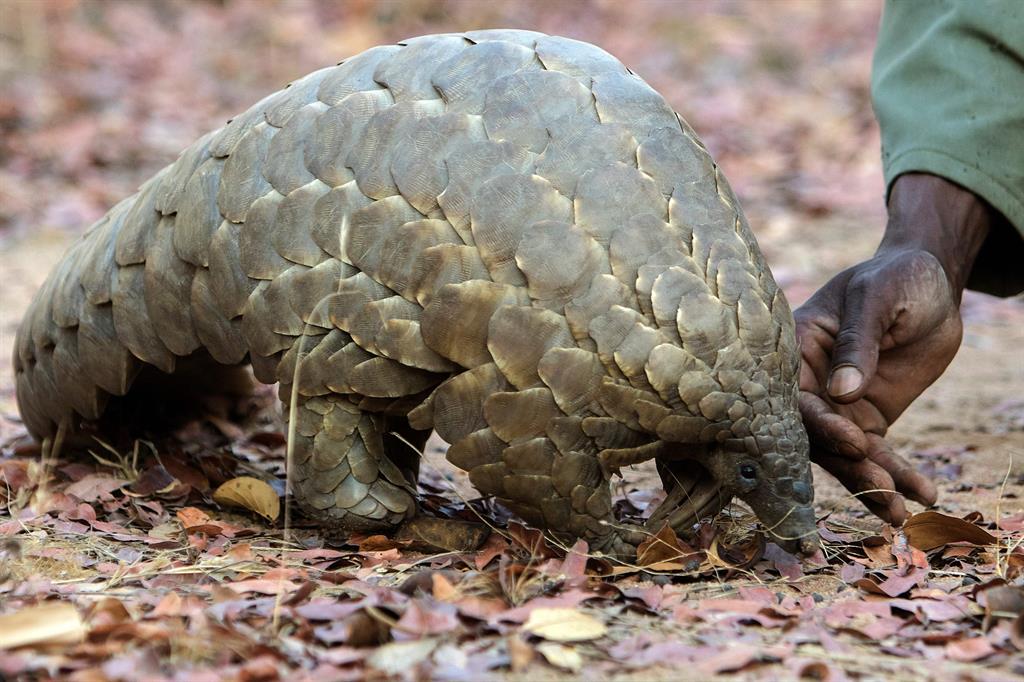Cites must take action on illegal pangolin trade
ELLANIE SMIT
WINDHOEK
Parties of the Convention on International Trade in Endangered Species (Cites) can and must do more to address the dire impacts of the global illegal pangolin trade.
This according to a new briefing document, which outlines the Environmental Investigation Agency’s (EIA) findings and recommendations on key issues relating to the trade.
The EIA said following decades of overexploitation due to international trade, in 2016, all eight pangolin species were uplisted from Appendix II to Appendix I on Cites.
This made the international commercial trade in pangolins and their by-products illegal, but despite this, the global pangolin trafficking crisis has continued.
Between 2017 and present-day, the EIA has documented almost 300 tonnes of pangolin scales seized globally.
Chinese market
“Pangolin scales are trafficked by transnational criminal networks that operate with high levels of impunity.”
EIA said it recognises that there are two key factors driving the global illegal pangolin trade.
“Firstly, the role of consumer demand in China, where pharmaceutical companies and hospitals can legally produce and sell traditional Chine medicine products containing pangolin scales, and secondly, a lack of fair and effective criminal justice responses to address the involvement of transnational criminal networks in pangolin trafficking.”
At the 18th Cites Conference of Parties, a decision was made for the Cites secretariat to prepare a report on pangolins to present information on their conservation status, legal and illegal trade, as well as stockpile management and enforcement issues.
It will be considered at the 74th meeting of the Cites standing committee, which is tentatively scheduled for March 2022.
“Although the timelines for the submission and review of this report are exceptionally slow, it represents an important opportunity to feed information into Cites decision-making processes.”
Vital
It is vital that Cites parties call for more urgent action from range, transit and destination countries to implement effective international law enforcement efforts targeting the criminal networks involved in pangolin trafficking, EIA’s pangolin campaign deputy leader, Chris Hamley, said.
“Above all, it is essential that the international community, particular those countries affected by pangolin trafficking, strongly encourage the government of China to eliminate demand for pangolin specimens, including use for Chinese medicine products. This would have a meaningful impact on reducing much of the trafficking.”
Statistics from the Namibian environment ministry indicate that eight live pangolins were seized last year as well as five carcasses, 59 skins, five skin pieces and 924 scales.
WINDHOEK
Parties of the Convention on International Trade in Endangered Species (Cites) can and must do more to address the dire impacts of the global illegal pangolin trade.
This according to a new briefing document, which outlines the Environmental Investigation Agency’s (EIA) findings and recommendations on key issues relating to the trade.
The EIA said following decades of overexploitation due to international trade, in 2016, all eight pangolin species were uplisted from Appendix II to Appendix I on Cites.
This made the international commercial trade in pangolins and their by-products illegal, but despite this, the global pangolin trafficking crisis has continued.
Between 2017 and present-day, the EIA has documented almost 300 tonnes of pangolin scales seized globally.
Chinese market
“Pangolin scales are trafficked by transnational criminal networks that operate with high levels of impunity.”
EIA said it recognises that there are two key factors driving the global illegal pangolin trade.
“Firstly, the role of consumer demand in China, where pharmaceutical companies and hospitals can legally produce and sell traditional Chine medicine products containing pangolin scales, and secondly, a lack of fair and effective criminal justice responses to address the involvement of transnational criminal networks in pangolin trafficking.”
At the 18th Cites Conference of Parties, a decision was made for the Cites secretariat to prepare a report on pangolins to present information on their conservation status, legal and illegal trade, as well as stockpile management and enforcement issues.
It will be considered at the 74th meeting of the Cites standing committee, which is tentatively scheduled for March 2022.
“Although the timelines for the submission and review of this report are exceptionally slow, it represents an important opportunity to feed information into Cites decision-making processes.”
Vital
It is vital that Cites parties call for more urgent action from range, transit and destination countries to implement effective international law enforcement efforts targeting the criminal networks involved in pangolin trafficking, EIA’s pangolin campaign deputy leader, Chris Hamley, said.
“Above all, it is essential that the international community, particular those countries affected by pangolin trafficking, strongly encourage the government of China to eliminate demand for pangolin specimens, including use for Chinese medicine products. This would have a meaningful impact on reducing much of the trafficking.”
Statistics from the Namibian environment ministry indicate that eight live pangolins were seized last year as well as five carcasses, 59 skins, five skin pieces and 924 scales.





Comments
Namibian Sun
No comments have been left on this article